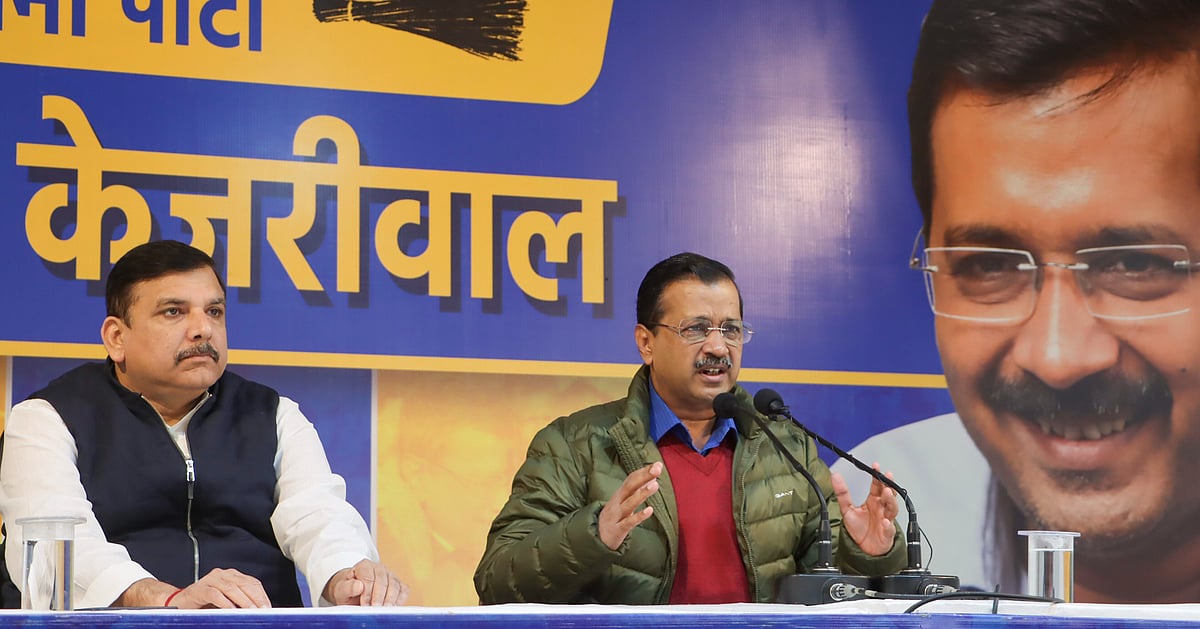 |
|
The final day of campaigning for the Delhi Assembly elections saw a fiery conclusion, marked by accusations and criticisms from Aam Aadmi Party (AAP) leader Arvind Kejriwal. In a press conference held on the eve of the February 5th election, Kejriwal launched a scathing attack on the Bharatiya Janata Party (BJP), accusing them of widespread hooliganism and intimidation tactics aimed at disrupting the democratic process. He presented several anecdotal accounts, detailing alleged instances of BJP workers harassing AAP supporters and disrupting their rallies. These claims, however, remain unsubstantiated and require further investigation to determine their veracity. The gravity of the accusations, however, cannot be overlooked, especially in the context of a highly contested election. The potential implications for the fairness and integrity of the electoral process are significant, and require a thorough assessment by relevant authorities.
Kejriwal’s criticism extended beyond the BJP, targeting Chief Election Commissioner (CEC) Rajiv Kumar directly. He leveled serious allegations against the CEC, accusing him of compromising the principles of democracy for personal gain. The specific nature of these accusations needs clarification, but the implication is one of bias and unethical conduct. Such an accusation against the head of the Election Commission is extremely serious and warrants a detailed response from the CEC and a thorough examination by independent bodies. The perception of impartiality is crucial for maintaining public trust in the electoral system, and any allegations that challenge this perception must be addressed swiftly and decisively. The potential ramifications of substantiated accusations against the CEC extend far beyond the Delhi elections, potentially impacting the credibility of the entire Indian electoral system.
The timing of Kejriwal’s press conference, on the last day of campaigning, is also noteworthy. This strategic move likely aims to maximize media attention and influence public opinion before the voting commences. The aggressive tone of his accusations suggests a heightened sense of urgency and perhaps a feeling of being cornered. Whether this strategy will yield positive results for the AAP remains to be seen. However, it underscores the high stakes involved in this election and the intense political rivalry between the AAP and the BJP in Delhi. The outcome of the election will not only determine the future governance of Delhi, but will also have significant implications for national politics, influencing the political landscape in the lead up to the 2024 general elections.
The accusations leveled by Kejriwal against both the BJP and the CEC require careful consideration. While allegations of hooliganism and voter intimidation are serious, they must be backed by concrete evidence to avoid undermining the integrity of the election process. Similarly, accusations of bias against the CEC require thorough investigation to ensure the impartiality and credibility of the election commission. Independent inquiries, transparent investigations, and the timely dissemination of findings are crucial to maintaining public faith in the electoral system and upholding the principles of free and fair elections. The coming days will be crucial in assessing the validity of Kejriwal’s claims and determining their impact on the outcome of the Delhi Assembly elections.
Beyond the immediate impact on the election, this event highlights the larger issues surrounding political discourse and the role of institutions in maintaining democratic values. The aggressive rhetoric and accusations illustrate the heightened polarization of Indian politics. It also raises questions about the mechanisms in place to ensure accountability and transparency within election processes. The need for stronger safeguards against voter intimidation and for stricter ethical standards within election administration is evident. This incident underscores the importance of robust and independent mechanisms to investigate claims of electoral misconduct and ensure the integrity of the democratic process. It is critical for the future of Indian democracy that such allegations be treated with the utmost seriousness and dealt with fairly and effectively.
